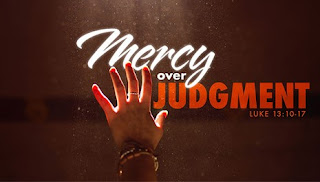Father’s Heart on Christmas Morning
I was sitting in my “Papa Chair” with generations of my family scattered around the house Christmas morning.
Over the past few decades, my family has grown up, moved out, married well and “gone forth and multiplied,” both by marriage and by birthing more of us. It had been a fair number of years since we’d all been able to celebrate Christmas together, and we were enjoying it immensely.
That morning would be an excellent illustration of the phrase, “tumultuous cacophony!” There was noise and energy everywhere, and it was beautiful! There was an immense quantity of laughter, from children and parents alike, with wrestling, story-telling, coffee-making, snack-sharing and eventually, distributing of gifts from under the tree to the locations where everyone might eventually settle down. If they ever would sit down.
For half a century and more, our tradition has been to begin with the youngest among us and then to take turns opening a gift apiece. If it is clothing, it must be worn. If it is food, it should be shared. There was no need to remind any one to give thanks, as thankfulness and laughter and joy flowed freely. Gifts were not particularly extravagant, but they were heart-felt, personal and loudly celebrated. They never did settle down, and it was good.
During the gift-opening, the tumultuous cacophony didn’t stop, didn’t slow down; it simply drifted vaguely in the direction of the living room and of the presents. Coffee cups were refilled continuously, glasses were regularly topped off, more snacks were shared, more photos were taken and shared, more stories told, more laughter, more rejoicing, more fun….
And suddenly it seemed like everything froze for a mere eternity-long instant, and my eyes were opened briefly. Suddenly I saw so much better.
In a moment, I saw that all the images and vain imaginations of what I had assumed about Heaven were oh-so-terribly inadequate. For a brief moment I saw through Father’s eyes, and I saw that this was at least part of what he’s been looking forward to about heaven: the family gathered around, loving being together, filled with love and joy and celebration for the family, including the head of the family.
And I realized that Father has a bigger family than I do, a much bigger family. But being omniscient, being omnipresent, he can completely rejoice with every single individual of his billions of sons and daughters as I was with the dozen or so rejoicing together in my noisy living room.
I got a quick peek of the Father’s family, full of joy and generosity and celebration, his own mighty heart rejoicing with them all, and for the first time perhaps, I think I might have begun to understand the Heavenly worship swirling around the throne that John tried so hard to describe in his Book of Revelation.
I think I might have caught a glance of “the joy that was before him” that carried the Son of God through the torment of the Cross and the grave. I think I might have glimpsed just a little bit of what God was looking forward to when he said to himself, “Let us make man in our image, after our likeness.”
This was a celebration he was anticipating. My living room was the tiniest foretaste of what the psalmist described as, “You will fill me with joy in your presence, with eternal pleasures at your right hand.”
There were other insights, too; the experience was a little overwhelming. I glimpsed even tinier views of Father’s heart for those who were not in the house that morning, but that was not the lesson of the day. The morning’s lesson was about joy that the Father’s family brings his Almighty heart.
I saw from Father’s eyes for just a fraction of a second, a tiny stretch of eternity, and then reality crashed again on my shores and I was swept away by the joy of my own family, and of their joy of being together, of giving and receiving gifts, of celebration and laughter. The joy continued for a long, long time.
And it was good. It was very good.



.jpg)
.jpg)









